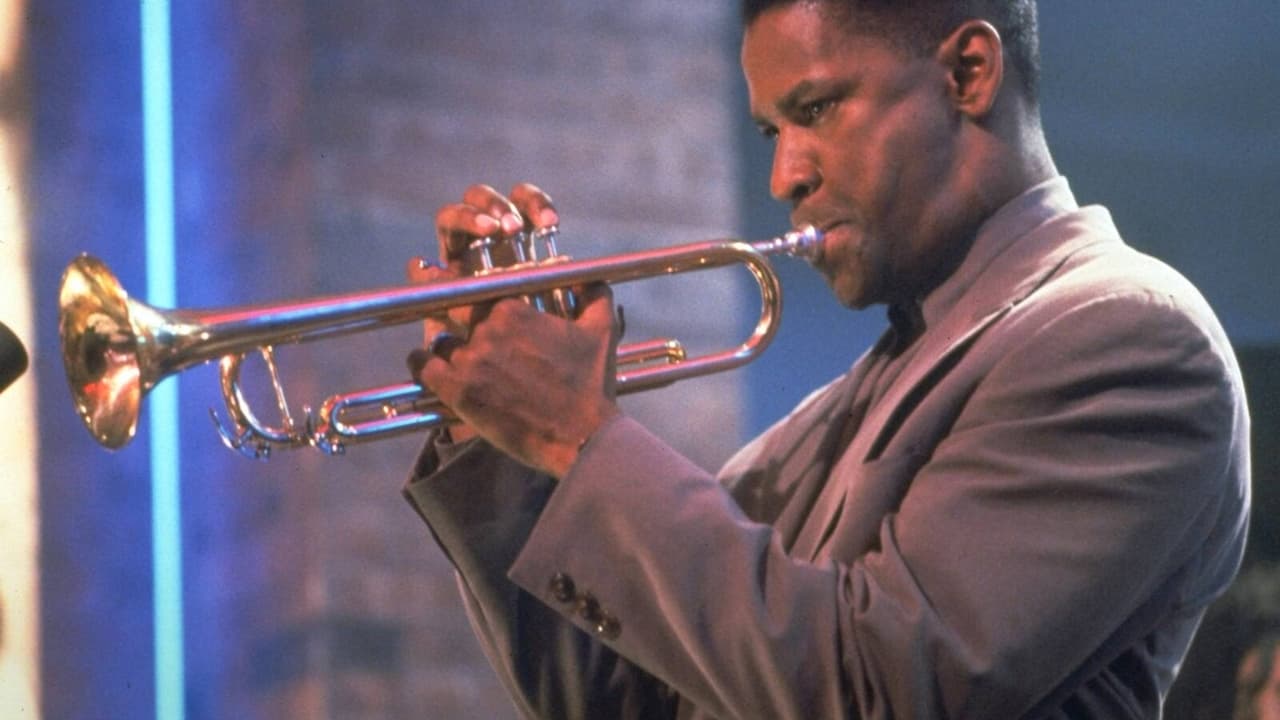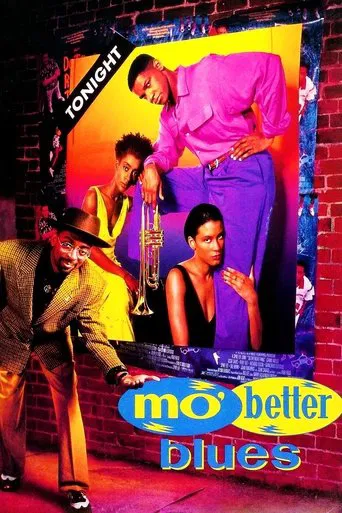

This was a frustrating movie for me because it was at times brilliant, yet there are a few things that could have been done better.Spike Lee shows why he is revered as a writer director, with beautiful dynamic shots, intercut with smooth jazz. It is a charming presentation. Also the dialogue is interesting and feels natural and spontaneous. The combination of strong writing and acting makes for interesting conversations.The things I found frustrating was the lack of a focused or interesting story. Also Spike Lee's performance was very weak compared to Denzel's and he should have stayed out of the movie. He actually took a lot of the attention from the other characters and tried to make the movie about himself.
... View MoreThis is a very entertaining movie and it is underrated. The characters, story and music are captivating.However, I think part of the reason for the lower ratings is the the poor camera effects. Lee focuses in on characters at times, as though they are standing and talking to a camera by themselves in some sterile room, such that it actually cheapens the film. There is a real lack of realism to this technique - it reminds me of 1960's style TV shows like Batman. It gives a feel that they ran out of money and when they had to go back and re-shoot the scene, they did so on the cheap. A minority may find this unique or appealing, but no great movie or director will use this technique. The filming with multiple characters in the shot is generally very good. But, the movie could have been better without these flaws.The writing at times is exceptional. There are great lines, as well as very entertaining dialogue. The scenes between Denzel and Snipes are exude an extraordinary power and they offer an exceptional dynamic to the movie as a whole. The female characters are also very compelling. "Clark" (Cynda Williams) is extraordinarily attractive and the movement of the character through the course of the movie is well done.It is difficult not to be captivated by this film. The positive cultural dynamic it captures is one that Americans can only hope to be present. Yet, one gets the feeling that reality is closer to the darker elements the movie exposes. Yet, there is ultimately a very positive message of love, responsibility.
... View MoreOne of the best film's Spike Lee has ever created. Denzel Washington plays Bleek Gilliam, a selfish musician who only listens to his music. He cheats on his women and wants the spotlight only to himself. On his road to redemption he encounters betrayal, lies, and greed before he finds happiness. A happiness that comes at a heavy price. Denzel Washington and Wesley Snipes give superb performances in their roles. The supporting cast members also give terrific performances in this film. The supporting cast members include Giancarlo Esposito, Samuel L. Jackson, Bill Nunn and Spike Lee. Spike Lee gives these characters enough personality to keep this movie entertaining. Each member adds enough color commentary to the film making this a joyous event from beginning to end. Add this movie to your video collection if you haven't already.
... View MoreAs with several of Spike Lee's earlier films I just do not get them as they are not part of the lifestyle I lead. But that is not to say they are not stunningly beautiful and full of charm. This film says a lot about trumpet music and jazz, it's just not my cup of tea, I would much rather watch Lee's more racial driven films. This film marks the first of four collaborations that Spike Lee and Denzele Washington have conferred on together and it is their least effective, but every one has got to start somewhere. If they had not done this together than the camaraderie that is felt on the better films Malcolm X, He Got Game, and Inside Man, could never had been achieved. This film is basically just the building block to bridge the gap until Spike and his troupe are better prepared to take on better ideas to be put into film.This film has a great supporting cast as do most of Lee's films. It's got Sam L. Jackson, Joie Lee, John Turrtoro, Bill Nunn, and Robin Harris among others. These people are all great actors and always leave an impression on a film even when the film is not that good. This film could have been made better if it had not relied completely on Denzel's character to drive the story, if it had been opened up and given the other actors time to prevail their characters than the film would have been helped by what they could have brought to the table. As the film is it just stays stagnate and not much happens. If you want to hear some good music watch, i would suggest a CD though, stay away if you want a solid story.
... View More